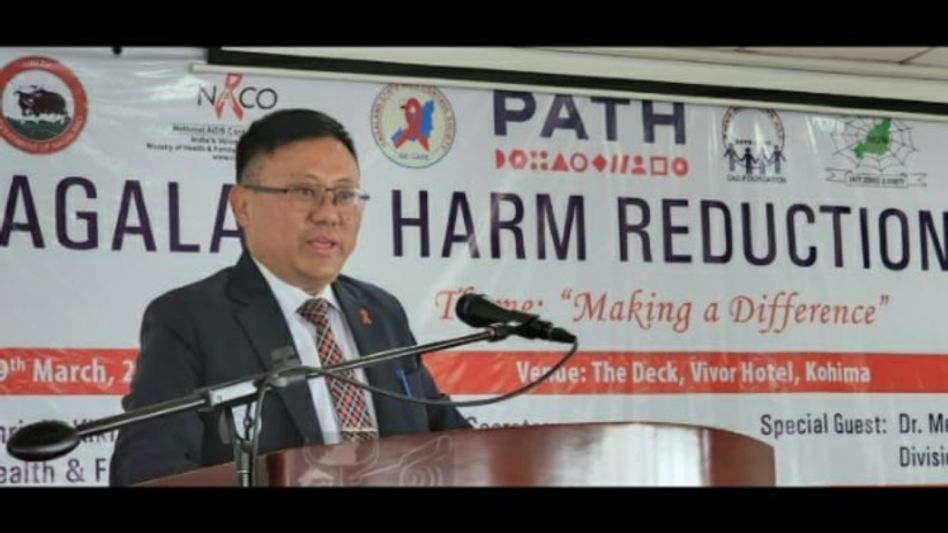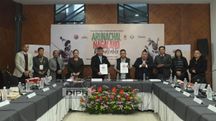Nagaland records highest number of HIV-positive cases in women under antenatal care in India
The HIV-positive women under antenatal care (ANC) in Nagaland stood at 1.61 per cent as against the national average of 0.22, which is the highest in the country.
 Nagaland records highest number of HIV-positive cases in women
Nagaland records highest number of HIV-positive cases in womenThe HIV-positive women under antenatal care (ANC) in Nagaland, as per NACO HSS Plus Report 2021, stood at 1.61 per cent as against the national average of 0.22, which is the highest in the country.
Y Kikheto Sema, commissioner and secretary of Nagaland health and family welfare department, said this at the 2nd Nagaland harm reduction conference held on the theme 'Making a difference’ in Kohima on Tuesday.
Sema said the HIV prevalence rate among the people in the age group of 15 to 49 years in the state stood at 1.36 per cent as against the national average of 0.21 per cent, which is the second highest in the country.
Also Read: Centre cites scientific evidence as a basis for not taking blood from trans, gay and sex workers
He said only 16% of the youth aged between 15 to 24 years have comprehensive knowledge of HIV/AIDS while 45% of youth do not know the source of condoms and 37% of sexually active youth are engaged in high-risk sexual behaviour (NFHS-IV).
Sema said the December 2022 data in the state indicated that about 21% of the HIV-positive cases are below the age of 24, while the major route of HIV transmission is through the sexual (87%) and injecting (6.7%) route. The HIV Sentinel surveillance of 2021 showed a worrying trend of increase in HIV prevalence amongst injecting drug users (IDUs) from 1.3% to 2. 24%, he said.
Sema added that the state was able to bring down the HIV prevalence rate amongst IDUs from 39% prevalence in 1991 to 2.4% by 2021 with the active support of NSACS, NACO, development partners and all stakeholders.
The official appreciated all the NGOs and field teams who are tirelessly working to reach out to the hidden population and deliver services on time. He called upon all concerned to keep on working so that new infections and further transmission of HIV are halted completely in the state.
Sema assured that the health and family welfare department and the state government will work closely with all the development partners, stakeholders and NGOs for the prevention of drugs, HIV and AIDS and to take care of the affected people.
Sema said the event assumed importance as through it, all the stakeholders can share their experiences, highlight the success and challenges and also strengthen the policies and programmes of public health and social security to ensure an evidence-based response to drugs and HIV /AIDS besides planning out efforts for prevention of the disease as well as to take care of the affected people.
Dr Melissa Nyendak, director of the Division of Global HIV and TB, CDC India, was the special guest at the conference.
Copyright©2025 Living Media India Limited. For reprint rights: Syndications Today









